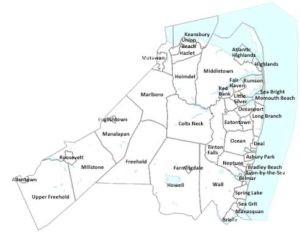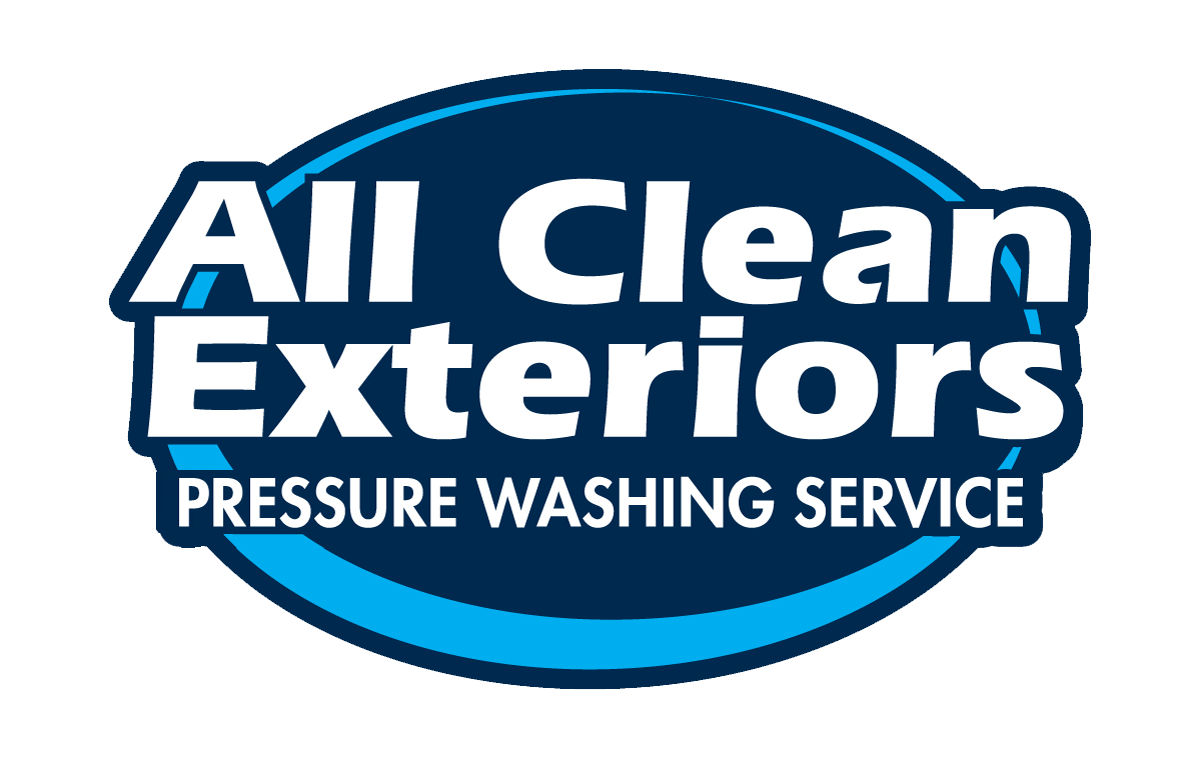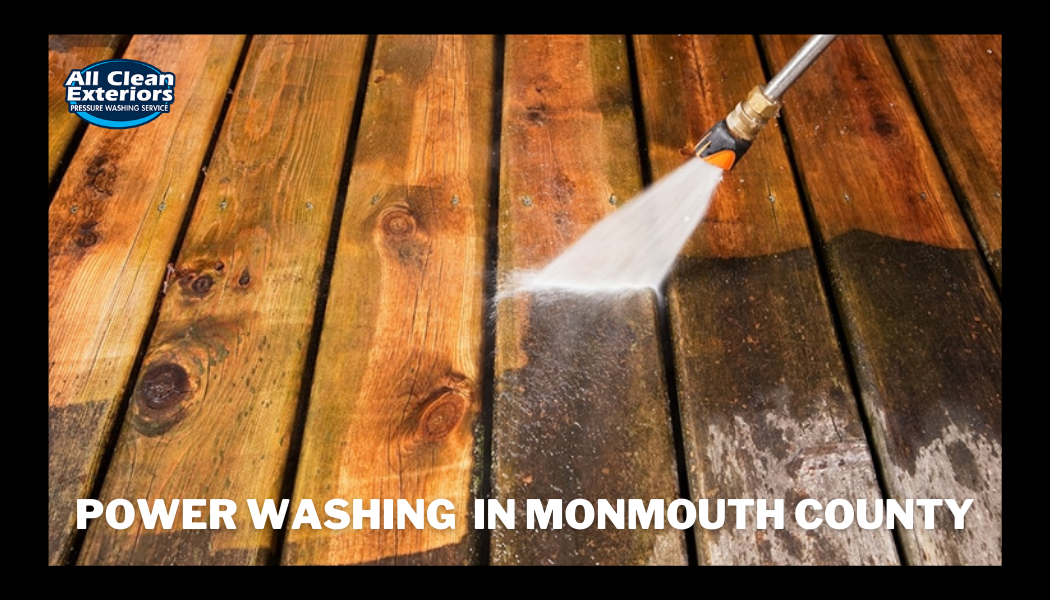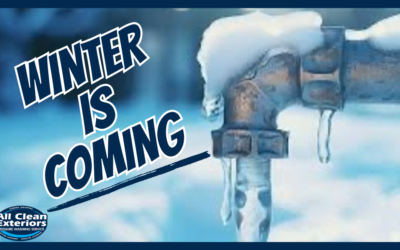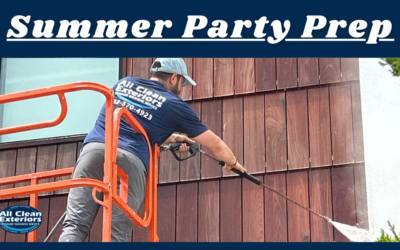Power Washing in Monmouth County Area
By now, we all know the importance of curb appeal and increasing the appearance of your home. But what about preventing damage and extending the life of our property? Power washing is much more than grabbing a hose and spraying your house. Lucky for you, All Clean Exteriors is the premiere residential and commercial pressure washing service in Monmouth County and the surrounding area.
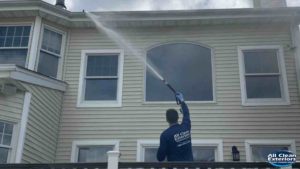
What kind of power washing is needed in Monmouth County?
When it comes to power washing, it is often unclear which materials and surfaces require which type of washing. If the wrong type of solution or pressure is used, the damage caused to your home could become expensive, quickly. This is where All Clean Exteriors of Monmouth County, NJ comes in. We have extensive experience in residential and commercial power washing. Don’t take my word for it, read our previous customers Google and Facebook reviews. While high pressure washing concrete will restore it to its original and natural beauty, it will destroy most residential roofs. With our years of experience, we know the proper pressure and techniques to use on every type of material.
MORE: Everything You Need to Know About Concrete Rust Stains.
So lets get in details about the various surfaces that are suitable for power washing. Please understand that every surface requires a different water pressure and/or detergent recipe. If you decide to use the wrong pressure or detergent, the surface could be destroyed very quickly. Even worse, these effects way unnoticeable at first. Therefore, lets stop wasting time and jump right into it.
What surfaces should be power washed?
 All of them. If you read our previous post “What is Power Washing” you already know the terms power washing and pressure washing are interchangeable with each other. Many surfaces may be power-washed; however, like previously mentioned, many factors will determine the type of washing needed. Therefore, it is important to understand the risks of power washing. That is where the professionals step in and utilize our expertise to ensure no damage is caused. With that being said, the following is the most common surfaces which are cleaned with a power washer:
All of them. If you read our previous post “What is Power Washing” you already know the terms power washing and pressure washing are interchangeable with each other. Many surfaces may be power-washed; however, like previously mentioned, many factors will determine the type of washing needed. Therefore, it is important to understand the risks of power washing. That is where the professionals step in and utilize our expertise to ensure no damage is caused. With that being said, the following is the most common surfaces which are cleaned with a power washer:
– Paver bricks for sidewalks, driveways, and patio decking
– Paths, driveways, and walkways, such as concrete, stone slabs, wood decks
– Concrete, stucco, vinyl, and wood exteriors and siding
– Stone and brickwork
– Roofs (all types, metal, shingle, tile, etc.)
– Fencing (wood, vinyl, metal, retention walls, etc.)
Be mindful that each one of these surfaces require a different method, pressure and detergent to be used. Like mentioned above, the wrong combination and prove catastrophic to the material. All Clean Exteriors is equipped with the knowledge and experience to safely clean any type of surface. We are so confident in our work that we provide a 100% Money-Back Guarantee.
Do I need power washing?
The answer to this question is almost always, yes. Trust me when I say that the need for power washing goes well beyond increasing curb appeal. As beautiful as this world is, the environment causes many issues to our property. These can range of dirt and algae all the way to mold, and mildew. The later being the most harmful. Although these surfaces can become an eyesore when the filth grows, there may also be underlying damage being caused. Power washing will restore the appearance and increase the lifespan of your surfaces. There is a fairly good chance that you would be able to successfully power wash your own house. But there are many risks that come with do-it-yourself power washing. By hiring a Professional Power Washing Service, you can trust the job will be completed quickly and safely. If you would like to learn more about these benefits, take a quick read of “6 Benefits to Power Washing.”
Types of power washing
There are various levels of water pressure available when cleaning with a power washer. The two most common are usually referred to as soft wash and high pressure wash. These terms re fairly self-explanatory but know that soft wash is used with a chemical detergent. The detergent is needed because the low water pressure is not sufficient by itself to clean those tough stains. But fear not, All Clean Exteriors uses a proprietary cleaning detergent that is environmentally friendly. Therefore, all those plants and your pets will be safe. The purpose of the soft wash is too clean those delicate surfaces without risk of causing serious damage. The other most common type of power washing is high pressure wash. High pressure washing is used on those hard, durable surfaces. The high water pressure is sure to remove all those tough, deep stains in the small pores of cement and concrete. High pressure is also commonly used to prep certain materials for paint. The high pressure will take off all the old paint chips and cracks, preparing the surface for paint or stain. With that being said, wood is a tricky one, as the high pressure can often cause damage while removing the paint, so be careful. If it is your first time, I suggest using a test piece first.
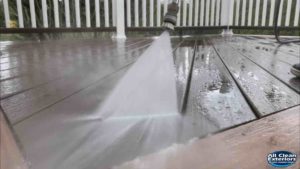
So we have covered when to use different water pressure, but what about the other factors to consider. Although the pressure of the water matters, don’t forget about the wand tip (attached to the nozzle of the hose). The wand types will change the stream, movement and pressure of the water as it leaves the wand. This tips are often not thought about when power washing, but they can make all the difference. There are a ton of wand tip options, so check out the photo below to learn more.
Now let’s talk about water temperature. The best way to think about the importance of water temperature is in your own daily cleaning. We are always told to wash our hands, dishes and clothes with hot or warm water for better results. But surprising that is not always true. Studies have shown that in most cases, the temperature does not make a difference. Check out this article in the New York Times to learn about the studies. To sum it up, the FDA (Food and Drug Administration), states that when it comes to washing our hands, warm nor cold water does not remove germs better. However, warm water has proven to remove oils more easily. So now lets apply that to power washing our house or property. We want the cleanest result possible while safely preserving the surface. Sometimes warm water is needed, but it is often irrelevant when power washing. For a more detailed look at the difference between hot and cold power washing, check out this article
Power Washing in Monmouth County
As you have read, power washing is much more than grabbing a hose and spraying down your property. There are many factors and combinations of factors to consider. The wrong combination can damage your surface or fail to clean properly clean it. There are many companies available in the Monmouth County Area. Don’t fall for the cheapest price and regret it later. We have heard all of the horror stories involving poor power washing techniques. We are the industry leading power washing service in Monmouth County with experience in cleaning everything you can think of. Therefore, we are here to promote a positive experience while providing an expert service. It’s not rocket science to power wash a surface, but it isn’t as easy as it looks. Hopefully you have learned the various surfaces and details that go into cleaning something. Don’t forget, we are here to help. Give us a call and we will answer any of your questions, even if you are going to power wash your own property.
We are the industry experts in roof cleaning in Monmouth County. We use only the safest of detergents and soft wash techniques. Take a look at our Roof Cleaning Services and send a message when your ready.
